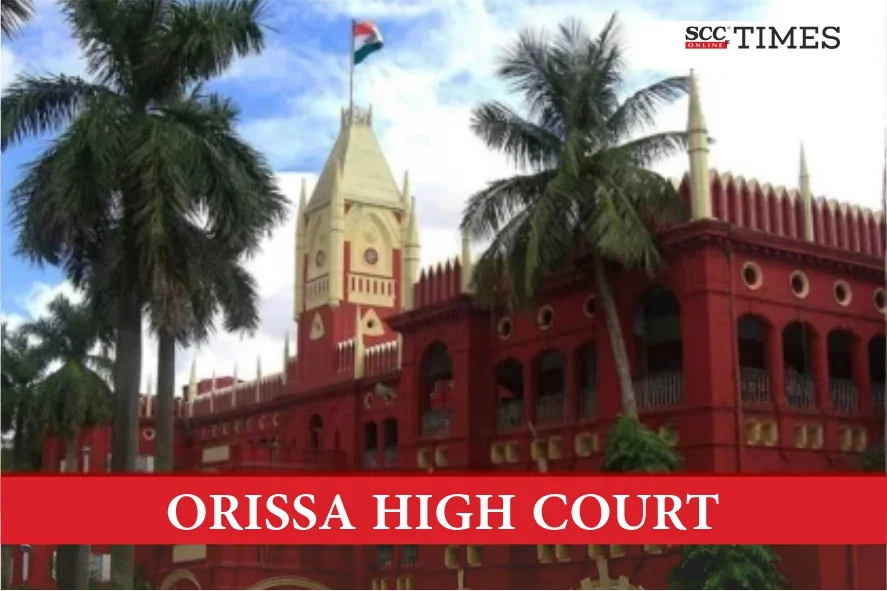Orissa High Court: In a plea seeking the release of the vehicle seized for transporting contraband, the Single Bench of Dr. SK Panigrahi, J. while reiterating that prolonged retention of seized vehicles in police custody serves no meaningful purpose and results only in their gradual deterioration and depreciation, directed the release of seized vehicle subject to certain conditions.
The Court directed the accused to produce the original registration certificate, insurance paper before the Police Station concerned, which shall be verified properly, and true attested copies thereof shall be retained by the I.O/IIC; and that the colour or any part of the engine and chassis number of the vehicle shall not be changed.
The Bench also directed the accused to furnish two photographs of the vehicle before taking delivery of the same; not transfer the ownership of the vehicle in favour of any other person; produce the vehicle before the Court as and when called upon; shall not allow the vehicle to be used in the commission of any offence; and furnish property/cash security of Rs.3,00,000/-.
Background
The vehicle in question (Auto) was allegedly used to transport contraband (Ganja), and was intercepted with about 78.7 kg of Ganja in 11 carry bags. The accused-present petitioner was arrested under Sections 20(b)(ii)(C), 25, and 29 of the Narcotic Drugs and Psychotropic Substances Act, 1985 (‘NDPS Act’). The prosecution’s case was that the vehicle was directly involved in transporting contraband, making it an instrument of crime. Under Section 52-A of the NDPS Act, vehicles used for transporting narcotics cannot be released to the accused but must be disposed of following the prescribed legal procedure. The Trial Court dismissed the accused person’s plea, stating that the vehicle was used in an NDPS Act offence, and precedents established that such vehicles should be disposed of rather than released.
Analysis and Decision
The Court said that the seized vehicle was in police custody for over a year, exposed to the relentless forces of nature, including sun, rain, and fluctuating weather conditions, resulting in its gradual deterioration and inevitable depreciation. By its very nature, a vehicle is intended for active use and mobility, and its prolonged immobility in official custody serves no substantive legal or practical purpose.
The Court stated that, if left unattended indefinitely, the vehicle will inevitably suffer structural degradation, mechanical wear, and a substantial diminution in both its functional utility and economic value, rendering it unfit for future use. The law does not sanction the indefinite retention of property where its custody ceases to advance the cause of justice. Rather, the established legal principle dictates that seized property should be preserved and safeguarded, not subjected to unnecessary deterioration and waste.
Placing reliance on Sunderbhai Ambala Desai v. State of Gujarat, (2002) 10 SCC 283, and Bishwajit Dey v. State of Assam, 2025 SCC OnLine SC 40, the Court opined that the release of the vehicle was the most judicious course of action, while holding that keeping the vehicle immobilized for an indefinite period did not advance the prosecution’s case and only resulted in an unjustifiable loss to the registered owner.
The Court directed the release of the vehicle on the basis of certain conditions.
[Rajesh Kumar Sahu v. State of Odisha, 2025 SCC OnLine Ori 866, decided on: 13-03-2025]
Advocates who appeared in this case:
For Petitioner: Susant Kumar Lenka, Adv..
For Respondent: Jyoshnamayee Sahoo, ASC.







Good order